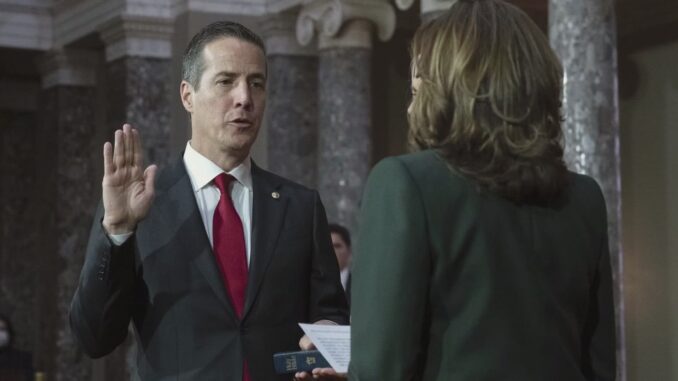In early April 2025, a significant and unprecedented event unfolded at Ohio State University (OSU): the U.S. State Department revoked the F-1 visas of at least seven international students without prior notice or clear explanation. This abrupt action not only disrupted the academic pursuits of the affected students but also sent ripples of concern throughout the OSU community and beyond. In response, OSU President Walter “Ted” Carter Jr. and Senator Marco Rubio have addressed the situation, providing insights and seeking clarity amidst the turmoil.
The Unforeseen Visa Revocations
The F-1 visa is a non-immigrant visa that allows international students to pursue academic studies in the United States. For many, obtaining this visa is the culmination of years of preparation and aspiration. Therefore, its sudden revocation is a matter of grave concern.
At OSU, the initial report indicated that five international students had their visas revoked. However, as investigations unfolded, the number rose to seven, and later to eleven. President Carter expressed deep concern over the lack of communication from federal authorities, stating that the university was neither formally notified nor provided with reasons for the visa terminations. He emphasized the university’s commitment to supporting the affected students, offering resources from various university offices, including Student Legal Services.
Senator Marco Rubio’s Involvement
Senator Marco Rubio, serving as the Secretary of State, confirmed that the State Department had revoked the visas of over 300 international students nationwide. He highlighted that such actions are within the purview of the U.S. government, especially if students are found to be in violation of certain laws or regulations. Rubio noted that these revocations are not arbitrary but are conducted to uphold national security and public safety. He further mentioned that some visa revocations were linked to student activism, particularly pro-Palestinian demonstrations on college campuses.
National Implications and Responses
The situation at OSU is not isolated. Similar incidents have been reported at other institutions, including Kent State University and the University of Akron. At Kent State, one current student and three recent graduates faced visa revocations, prompting the university to offer assistance in navigating the complexities arising from these actions.
The broader national context reveals a trend where international students, especially those involved in activism or legal issues, are increasingly under scrutiny. This development has raised alarms among university officials, legal experts, and student advocacy groups, all of whom fear that such actions could deter future international students from choosing the U.S. as their destination for higher education.
Legal and Ethical Considerations
The revocation of student visas touches upon intricate legal and ethical issues. While the U.S. government holds the authority to annul visas, the lack of transparency in the decision-making process has been a point of contention. Students and universities alike are left in the dark, struggling to understand the criteria and rationale behind such actions. Legal experts argue that due process and clear communication are fundamental rights that should be upheld, even in matters of national security.
University Initiatives and Student Support
In the face of uncertainty, OSU has demonstrated a proactive approach to supporting its international community. Beyond offering legal assistance, the university has engaged in discussions with national organizations, such as the American Council on Education, to seek clarity and advocate for its students. President Carter reiterated OSU’s pride in its diverse international community, acknowledging the invaluable contributions these students make to the university’s cultural and academic vibrancy.
Looking Ahead: Seeking Clarity and Resolution
As the situation continues to evolve, several questions remain unanswered:
- Criteria for Revocation: What specific laws or regulations led to the revocation of these visas?
- Communication Protocol: Why were universities and students not informed in advance about potential visa issues?
- Future Implications: How will this incident influence policies regarding international students and their rights?
Both President Carter and Senator Rubio have expressed a commitment to addressing these questions. Carter has called for legislative clarity to prevent future uncertainties, while Rubio has defended the State Department’s actions, emphasizing the importance of national security. However, until comprehensive information is provided, the OSU community and other affected institutions will remain in a state of apprehension, striving to support their international members amidst an atmosphere of ambiguity.
